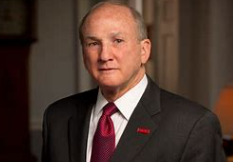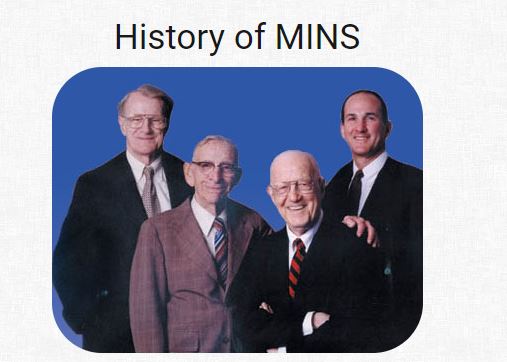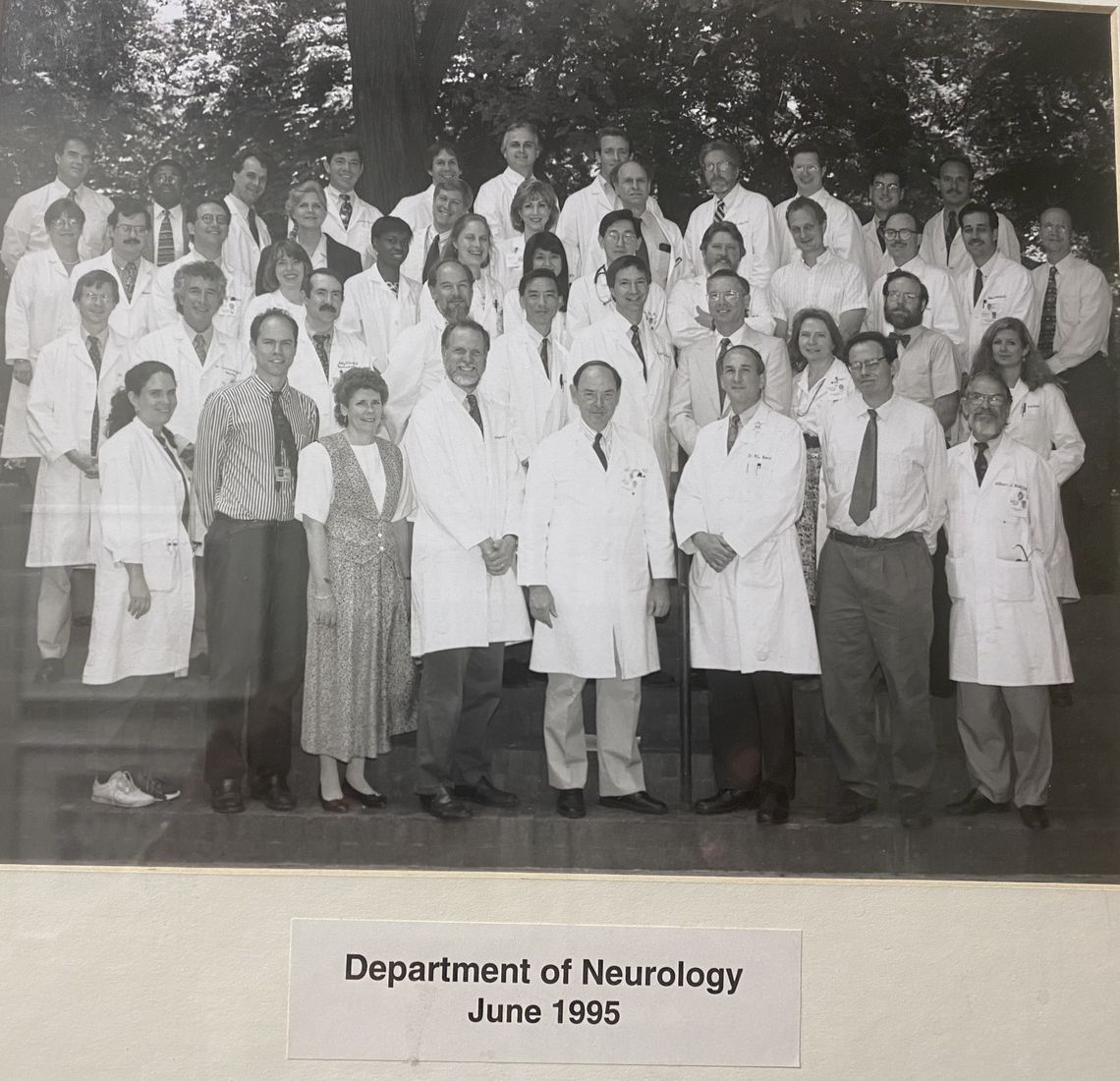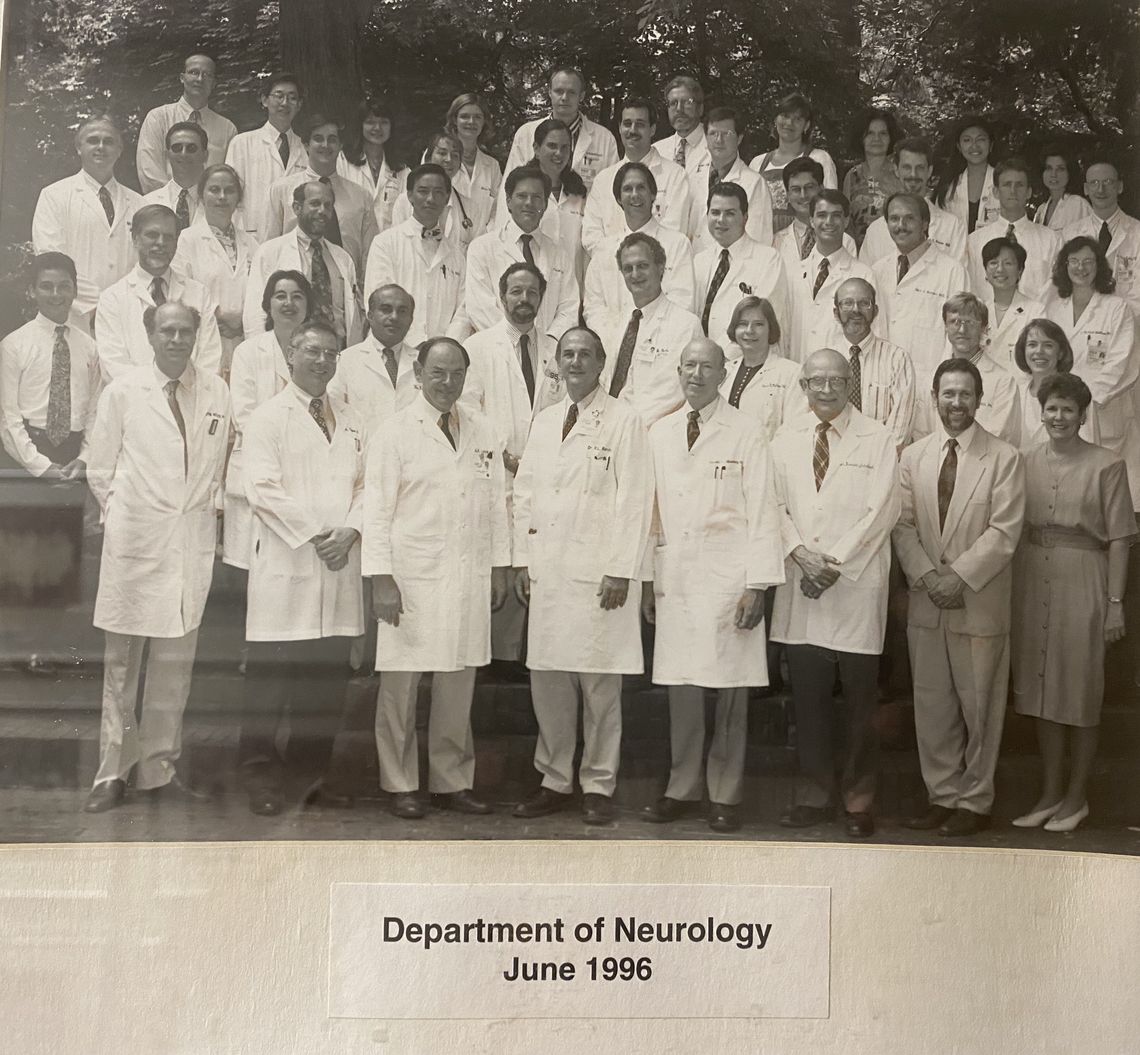- Our History
- The History of Neurology and Timeline
- Timeline
- Robert L. Barchi, Chair
FACULTY INTERVIEWS
Dr. Atul Kalanuria interviews Dr. Marc Dichter: Check out Marc Dichter talk about his love for teaching: Check out the full video here: Dichter Interview: full and snippets
Dr. Howard Hurtig interviews Dr. Robert Barchi: Check out former chair Robert Barchi talking about why he choose Neurology: Check out the full video here
Robert L. Barchi, Chair, 1995 — 1999
 Robert Lawrence Barchi MD, Ph.D., was Chair of Penn Neurology from 1995 until 1999, when he was selected to become Provost of the University of Pennsylvania by then President Judith Rodin, Ph.D. (1994-2004).
Robert Lawrence Barchi MD, Ph.D., was Chair of Penn Neurology from 1995 until 1999, when he was selected to become Provost of the University of Pennsylvania by then President Judith Rodin, Ph.D. (1994-2004).
Dr. Barchi was born in Philadelphia in 1946 but grew up in New Jersey. He graduated from St Joseph’s Prep and matriculated at Georgetown University in Washington, DC. He returned to Philadelphia for medical school at Penn, earning a combined MD-PhD in medicine-biochemistry and was one of the earliest graduates from the newly created, NIH funded national combined degree program (the Medical Scientist Training Program). Graduating in 1972, Dr. Barchi embarked on a career as a physician-scientist, entering a three-year neurology residency under the leadership of Dr. Lewis Rowland, Chair of Penn Neurology 1967-73. Upon completion of his residency, Dr. Barchi became a tenure track member of the Departments of Biochemistry-Biophysics and Neurology. In 1979, Dr. Barchi was appointed one of the earliest members of the faculty of the Penn School of Medicine to achieve the rank of full Professor.
As a bench scientist, Dr. Barchi achieved distinction by discovering the sequence of the voltage-gated sodium ion channel in skeletal muscle and neuronal membranes. He and a number of graduate students, research faculty and neurology residents created a body of basic research to describe the importance of the sodium channel in understanding basic neuromuscular physiology in normal and disease states. His work was recognized widely as seminal, leading to his induction into the Institute of Medicine of the National Academy of Sciences.
In 1983, Dr. Barchi was appointed director of the Mahoney Institute of Neurological Sciences (MINS), an inter-disciplinary, cross-campus organization at Penn, founded in 1953 by Dr. Louis

Barchi (pictured above)
Flexner under its original name as the Institute of Neurological Sciences, and in 1985, he was named the David Mahoney Professor of Neurological Sciences after the namesake of the corporate businessman who re-vitalized MINS with a large endowment.
In 1992, Dr. Barchi founded and became Chair of the new Department of Neuroscience at Penn, and in 1995, Dean and Vice President of Health Affairs Dr. William N. Kelley (1989-2000) appointed Dr. Barchi Chair of Neurology, succeeding Dr. Donald Silberberg in that position. Adding Neurology as a third department to his administrative portfolio resulted in a decision by Dr. Barchi and the administration for him to relinquish leadership positions and search for and recruit new leaders of MINS and Neuroscience.
During Dr. Barchi’s brief tenure as Chair of Neurology before he was recruited by Dr. Rodin to take the position of Provost, Penn’s Health System faced numerous internal and external challenges. Under the leadership of Dr. William Kelley as Dean, Penn Medicine underwent extensive acquisition of highly regarded new faculty and construction of many new research facilities. Moreover, growing competition from other large health systems in the Philadelphia area led to the creation of a large layer of middle management professionals to negotiate coveted insurance contracts to guarantee reliable reimbursements from companies that began to move increasingly toward more restrictive managed care from fee-for-service payments. In this highly competitive environment, smaller health systems were being squeezed severely and being absorbed by the larger ones. As a result the historic and independent Pennsylvania Hospital, America’s first, founded in 1751 by Benjamin Franklin and Dr. Thomas Bond, was acquired in 1996 by Penn to become the third principal hospital in the growing Penn health system in addition to the Hospital of the University of Pennsylvania and Penn Presbyterian Hospital. This expansion with its ongoing increased financial expense and risk by all competing entities in the marketplace created a dangerous vulnerability to financial catastrophe, which occurred with almost blind-sided force with the passage of the federal Balanced Budget Act (BBA) of 1997, and its marked cutback of federal Medicare-Medicaid reimbursement to hospitals and Health Systems nationwide. The financial hit to the Penn Health System was enormous, leading to sudden downsizing of the large administrative staff that Dr. Kelley had recruited to manage marketplace competition and a overall 20% reduction in the entire workforce of the health system. Before BBA, the health system was flush with cash to propel its aggressive approach to increase Penn’s share of the Philadelphia marketplace. After BBA, the system was in turmoil.
Meanwhile, upon becoming Chair in 1995, Dr. Barchi moved forward with an aggressive plan to restructure the Department. He renovated and modernized the clinical office space to accommodate current and new faculty and support staff, and he expanded the clinical footprint of the Department by creating the Penn Institute of Neurological Sciences at Pennsylvania Hospital in a 4 story building at 9th and Pine, opposite the Hospital at 8th and Spruce. He improved the Department’s trajectory toward greater NIH funding for neuroscience research and consolidated previously formed collaborations with the Departments of Neurosurgery and Radiology in the disciplines of neuro-intensive care and neuro-imaging.
Then, in late 1998, out of the blue, Dr. Rodin invited Dr. Barchi to become Provost of the University, in part because of the need for her to have an informed ally in managing the crisis of the health care system brought about by the sudden change in federal reimbursement. Dr. Howard Hurtig was appointed interim Chair by Dr. Kelley and served for a year until the appointment of Dr. Francisco Scarano-Gonzalez in late 1999 as Dr. Barchi’s successor.
References and Sources:
Major Discoveries and Events at Penn during this time
- 1995 - In January, the University appointed Susan H. Fuhrman, B.A., M.A., Ph.D., to the senior academic administrator position of Dean of the Graduate School of Education, effective 1 July. She was the first woman to be appointed Dean of this School and the thirteenth woman to serve as an academic Dean at Penn. Prior to accepting her appointment at Penn, she was Professor of Education Policy in the Eagleton Institute of Politics at Rutgers University and Chair of the Institute’s Consortium for Policy Research in Education. She continues to serve the University at the present time as Dean and George and Diane Weiss Professor of Education in the Educational Leadership Division of the Graduate School of Education.
- 1997 - In January 1997, Jon M. Huntsman (Wharton ’59), founder, Chairman and Chief Executive Officer of the Huntsman Chemical Corporation, endowed the Huntsman Program. “Globalization is the single most dramatic change factor affecting business….I am proud to endow a program that is the first to fully integrate comprehensive international studies into a business curriculum in order to prepare graduates to work anywhere.”The Huntsman Program is an integrated undergraduate program in business, language and liberal arts of the School of Arts and Sciences and the Wharton School.
Major Translational Research and Clinical Advances during this era
First outcomes study for temporal lobectomy for refractory epilepsy: outcome five years after surgery. 1996
The first ASL in patients with chronic cerebrovascular disease. Arterial spin labeled perfusion MRI for noninvasive quantification of cerebral blood flow was conceived at Penn. This was the first ASL perfusion MRI in acute stroke. (1998)
First use of fMRI to describe cognitive function (1995)
The first report characterizing the syndrome progressive non-fluent aphasia (1996)
The first report associating a clinical syndrome with FTLD-tau pathology (1996)


 Annual Group Photo’s (Barchi Era)
Annual Group Photo’s (Barchi Era)